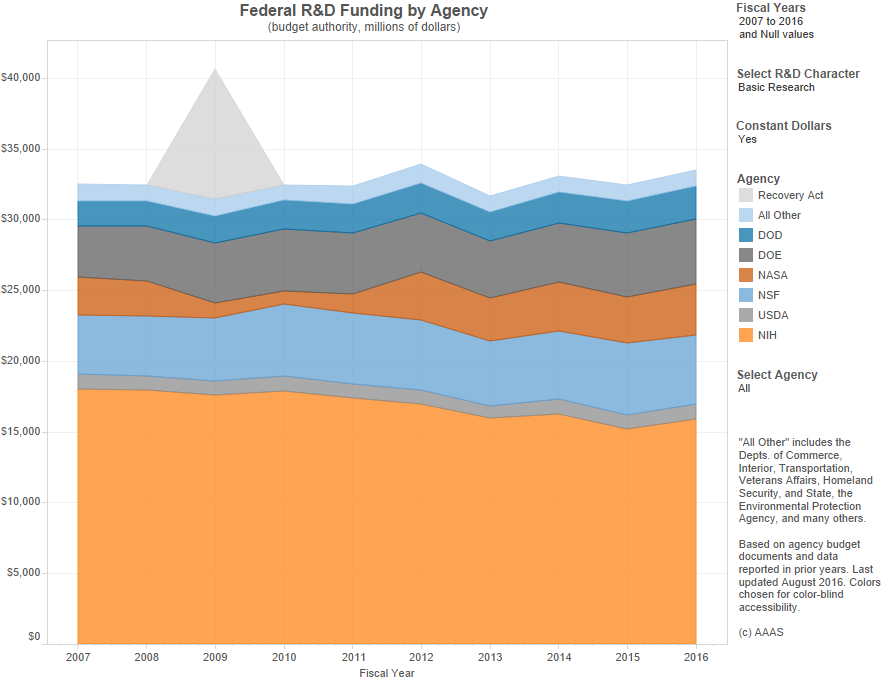Part of candidate Barack Obama's message of hope was he would unlock the power of science to cure disease, generate clean energy, create new jobs and otherwise put the country on an upward path.
In 2007, a year before the election, he unveiled his plan which included a pledge to "support doubling federal funding for basic research over 10 years."
The budget numbers show he didn't deliver.
Dollars for basic research come through many agencies, but the big ones are the National Institutes of Health, the National Science Foundation, and the departments of Energy, Defense and Agriculture.
There have been 10 fiscal years since Obama made his promise. We looked at the period from 2007 to 2016 and checked the results using different combinations of agencies and definitions of research.
Under no scenario did basic research double.
The chart below shows the budget trends for basic research across all the agencies, using the American Association for the Advancement of Science record of research spending.

Except for the 2009 bump from the economic stimulus package, by and large, budgets have held steady.
Congress authorized about $32.5 billion for 2007 and $33.5 billion for 2016.
The drive to reduce the deficit basically put this promise out of reach, said Matthew Hourihan, who oversees the research and development budget and policy program for the American Association for the Advancement of Science.
"A 10-year doubling would have required annual increases of 8 percent for each of these agencies," Hourihan said. "In most years, the administration did not ask for anywhere near this increase. Certainly not for the National Institutes of Health or the Office of Science. They did regularly seek funding boosts for the big three basic research agencies, but usually not enough to put the agencies on a 10-year doubling path."
On this promise, the numbers speak for themselves. Obama said he would push to double basic research spending, and it largely held steady. We rate this Promise Broken.


